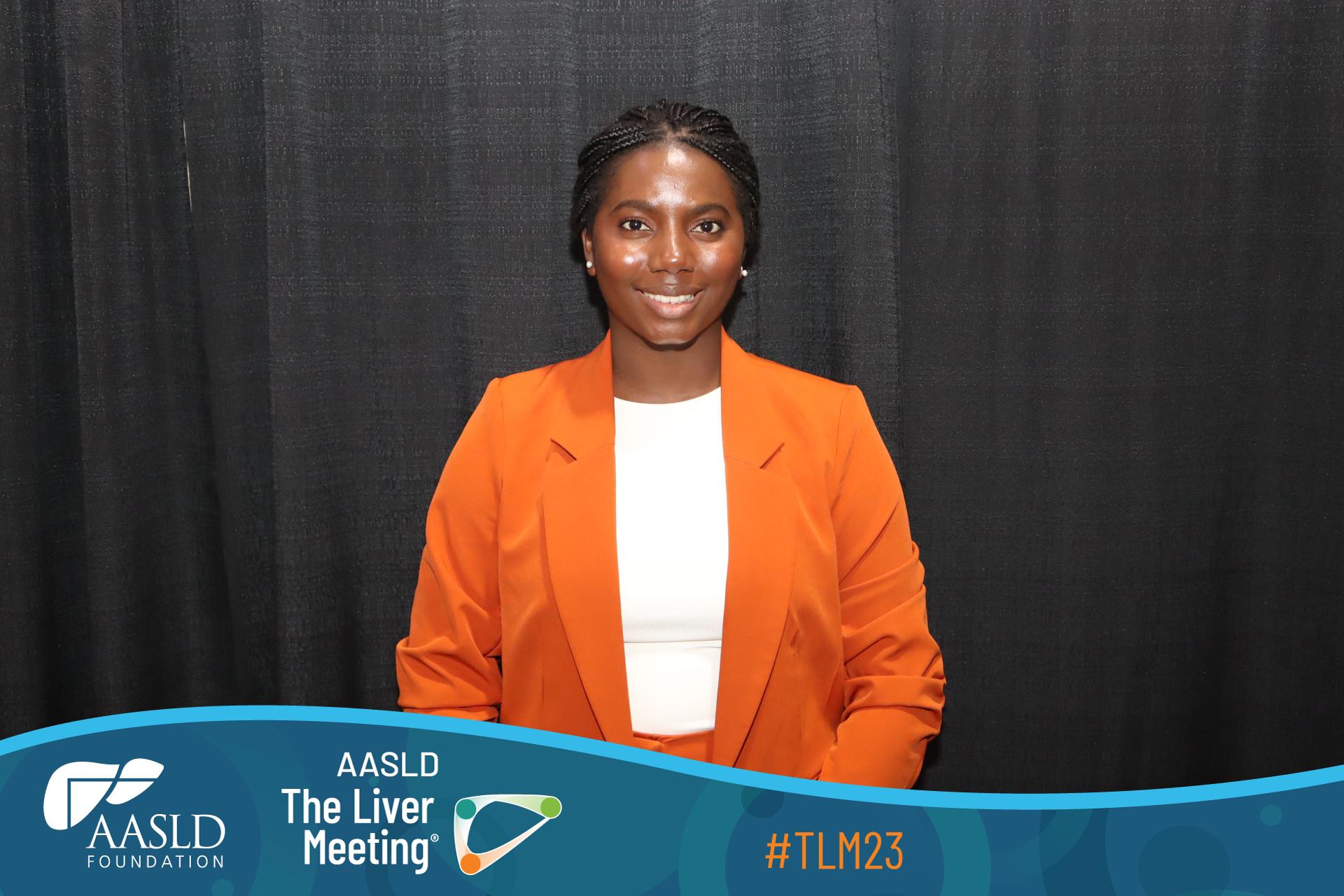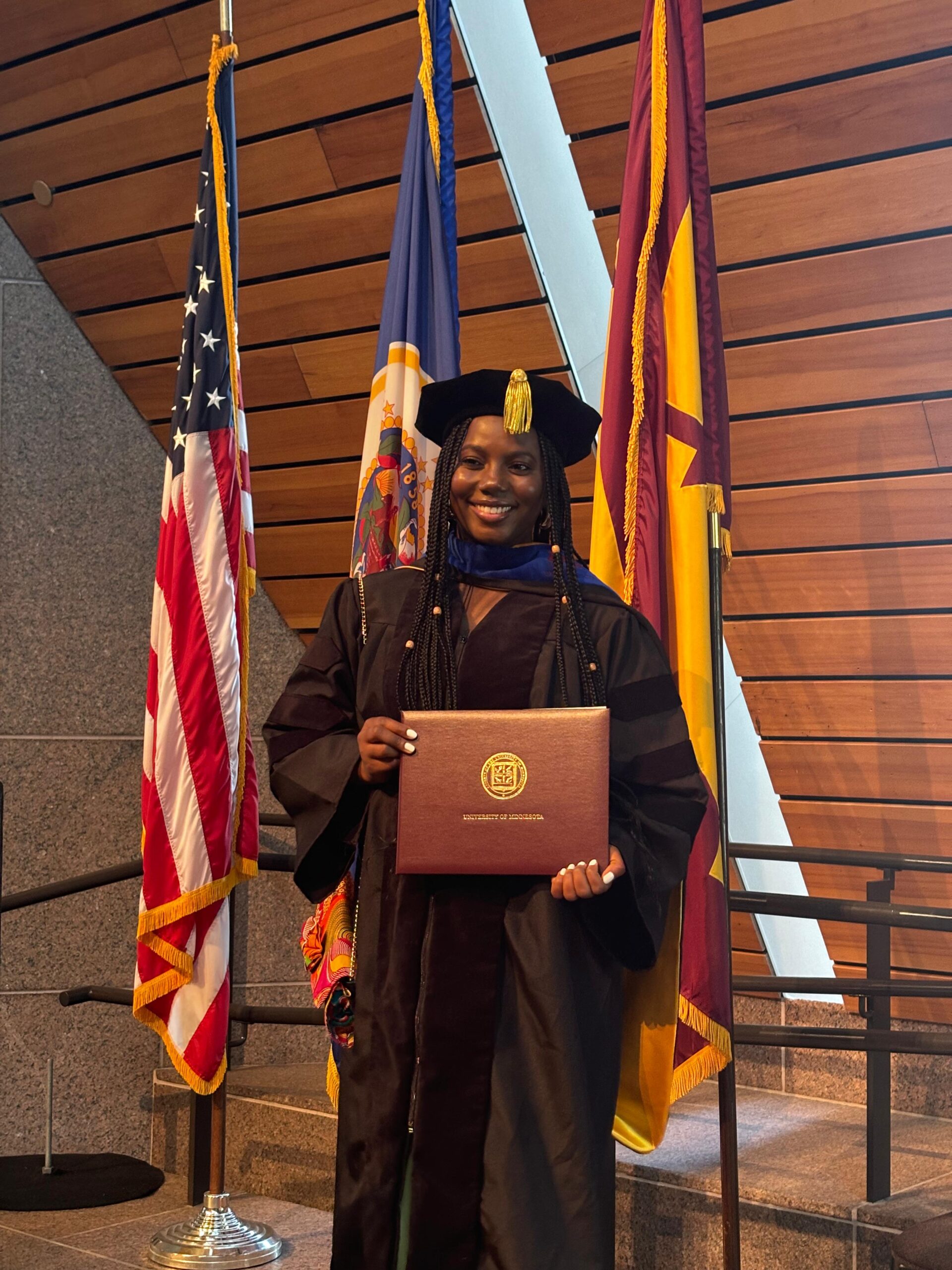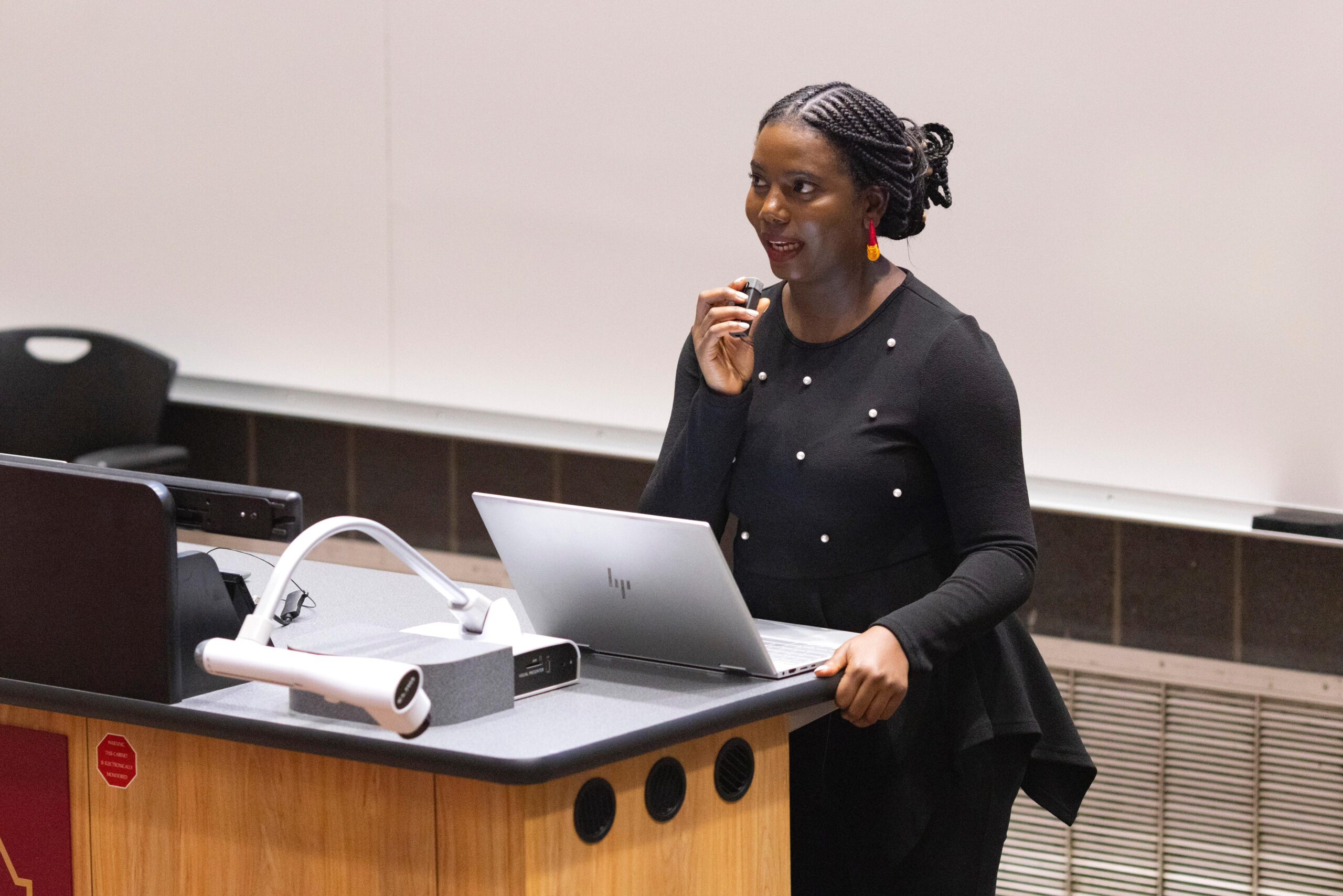By: Awa Conteh
This week on Women in STEM, we feature Dr. Fanta Barrow, a Gambian scientist whose journey from becoming a respected researcher in immunology and metabolic diseases is truly inspiring. Her work focuses on metabolic dysfunction-associated steatohepatitis (MASH), a disease that affects millions of people worldwide. Despite facing challenges along the way, Dr. Barrow’s determination, hard work, and passion for science have helped her succeed in a field where representation is often lacking.
Dr. Barrow’s academic journey began in The Gambia, where she attended Ndow’s Primary School, SOS Hermann Gmeiner Junior School, and Gambia Methodist Academy. Like many young Gambians, she first considered becoming a medical doctor, but she later realized that her true passion lay in research. During a seminar at the American Corner in The Gambia, she learned about biotechnology from a visiting U.S. scientist. That moment changed everything for her.
“I knew I wanted to make a meaningful impact, and research became my pathway,” she told The AlkambaTimes.
Determined to follow her dreams, Miss Barrow applied to universities in the U.S. and was accepted at Minnesota State University Moorhead, where she studied Biochemistry and Biotechnology. Moving to the U.S. wasn’t easy. She arrived with just $800—money her mother had struggled to save and borrow for her education. She worked multiple jobs to support herself while keeping up with her studies.

“The next four years were grueling, but I never lost sight of my goal,” she recalls.
After earning her undergraduate degree, Dr. Barrow briefly worked as a biotechnologist at Cargill. However, she soon realized that she wanted to return to academic research and further her studies. Within six months of starting a research program, her advisor encouraged her to apply for a Ph.D. program.
“I was fascinated by how understanding the underlying causes of diseases is fundamental to developing treatments,” she explains.
Dr. Barrow’s current research focuses on the immune system’s role in MASH, a disease that affects nearly 38% of the global population and has no approved treatment. She was drawn to this area of study because of its widespread impact and the urgent need for solutions.
“The immune system is meant to protect us, yet it can sometimes contribute to disease progression. I wanted to understand why and how we could intervene,” she says.
Publishing in scientific journals is no easy task, but Dr. Barrow has successfully authored several research papers in top journals. She explains that research requires patience, persistence, and resilience. Many experiments fail multiple times before yielding results, but each setback is a learning opportunity.
“Many experiments don’t work the first time—or even the tenth time—but each failure is a lesson that refines the approach,” she reflects.
Her hard work has been recognized with prestigious awards, including the American Heart Association Predoctoral Fellowship, which provided financial support for her research.
“These fellowships validated the significance of my work and fuelled my motivation,” she says.
Beyond her research, Dr. Barrow has taken on leadership roles in student organizations, helping to create spaces for international students and African scholars in STEM. These experiences have helped her develop leadership and advocacy skills, allowing her to support students facing similar challenges.
“It taught me how to communicate effectively and think strategically about how programs can support the next generation of researchers,” she explains.
Being an international student in STEM is not always easy. Dr. Barrow has faced financial struggles, self-doubt, and the reality of often being the only Black woman in the room. However, she remained focused, leaned on her mentors, and reminded herself that she had worked hard to earn her place.
“I had to remind myself that I worked just as hard—if not harder—to be where I was,” she shares.
As she prepares to graduate in 2025, Dr. Barrow hopes to transition into the pharmaceutical industry, focusing on drug discovery and translational research. She wants to help bridge the gap between research and real-world treatments.

“I want to be at the forefront of preclinical drug development, taking research from the bench to the bedside,” she says.
For young women in Africa who dream of a career in STEM, Dr. Barrow offers practical advice:
“Seek out research opportunities as early as possible. Even if resources are limited, find ways to gain exposure.”
She recalls how interning at the Medical Research Council in The Gambia helped lay the foundation for her career. She encourages young women to believe in themselves, no matter their background.
“You are more than the labels society or your circumstances place on you,” she says. “I went from selling water on the streets of Tallinding with my mother to earning a Ph.D. and conducting research that contributes to understanding a disease affecting millions worldwide. Your background does not define your future—your determination does.”
Dr. Barrow stressed the importance of visibility and mentorship when asked what she would change about women’s representation in STEM. She remembers seeing another woman of color in biotechnology, which inspired her to believe she could achieve her goals.
“Seeing someone who looked like me in that space made me believe I could do it too,” she says.
She believes that creating more opportunities for women in STEM will inspire young girls to pursue careers in science and technology.
“It’s crucial that women in STEM receive mentorship, resources, and leadership opportunities so they can pave the way for others,” she adds.

As we wrap up this episode of Women in STEM, Dr. Fanta Barrow’s journey reminds us that with perseverance, passion, and the right support, anyone can overcome challenges and achieve great things. Her story is not just about personal success—it’s about creating pathways for others, breaking barriers, and making sure the next generation of African women in STEM has the opportunities they deserve.
Her work is changing lives, and her journey is inspiring young women across the continent to dream big and never give up. Dr. Barrow’s legacy proves that the future of STEM is brighter, with women like her leading the way.






